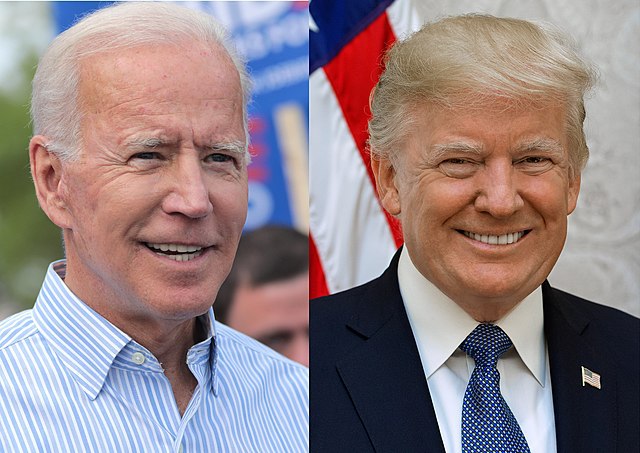North Korea began the development of its nuclear program in the 1950s, and its first nuclear facility was built in the early 1980s. In December 1985, it signed the Nuclear Non-proliferation Treaty (NPT), which is seen as fundamental to the pursuit of nuclear disarmament and preventing the spread of nuclear weapons. The NPT also promotes the peaceful use of nuclear energy. Active since 1970, 191 states are part of the treaty.
However, by 2003, North Korea had already announced that it would not be bound by the treaty’s terms and had secretly been operating a uranium-enrichment program. In October 2006, North Korea conducted its first nuclear test to the great dismay of the UN Security Council, which quickly imposed sanctions against North Korea. To this day, the proliferation of North Korea has been contentious and seen as a major threat to U.S. security.
When U.S. President Donald Trump came into office in 2017, he was tasked with a difficult problem: How should the Trump Administration go about the North Korean nuclear problem?
Trump had campaigned on the platform of denuclearization of North Korea. He claimed he wanted to reduce tensions with North Korea, which had reached new heights when North Korean dictator Kim Jong-un’s regime conducted its first intercontinental ballistic missile (ICBM). In response, Trump said that any North Korean nuclear attack would be “met with fire and fury like the world has never seen.”
A few months later, in September, North Korea tested what it claimed was its first hydrogen bomb. Trump responded by designating North Korea as a state-sponsor of terrorism. Trump and Kim launched their war of words, with the insult “Rocket Man” being thrown at Kim and “Dotard” at Trump.
However, on March 5, 2018, the world woke up to the shocking news that there would be the first United States-North Korea summit.
The summit was eventually held between Trump and Kim in Singapore in June 2018. The two leaders signed a joint statement in which they both agreed to pursue nuclear peace, better United States-North Korea relations, return U.S. troop remains home, and called for the complete denuclearization of North Korea, although all of the details were few and far between.
In return, Trump agreed to suspend U.S.-South Korea joint military exercises and provide sanctions relief to the Kim regime. Although this was the first of its kind and a landmark event in history, only one agreement was partially met, which was the repatriation of some U.S. POW/MIA remains.
After their summit, Trump and Kim appeared to be on good terms, with Trump saying he and Kim “fell in love.” Trump failed to appoint a U.S. special envoy for human rights in North Korea, and North Korea continued to grow its warhead stockpile, enrich uranium and develop missile launch sites, but did not conduct more missile tests in 2018.
Feb. 27, 2019 marked the second Trump-Kim summit, held in Hanoi, Vietnam, which was cut short on the second day of talks. This, similarly, did not result in a joint statement from the two leaders. Negotiations failed to move forward, and Kim agreed to dismantle a nuclear facility at Yongbyon in exchange for sanctions relief.
However, Trump wanted more concessions, which resulted in both walking away without a deal, despite the leaders suggesting they would continue talks in the future. Despite the fact that North Korea was still proliferating, at least the U.S.-North Korea relationship was less strenuous. In June, Trump historically became the first sitting president to step into North Korea and boast about their “great relationship,” despite North Korea continuing to test-launch missiles. By May 2019, North Korea had conducted its first missile test launch since the first summit, launching the KN-23, a tactical ballistic missile and reigniting tensions between the two countries.
In October 2019, the world witnessed the crumbling of U.S.-North Korea relations.
North Korea announced that the country will not do more to denuclearize or resume negotiations unless the United States relieves more sanctions and ends joint military exercises with South Korea. In December, Trump resumed calling Kim “Rocket Man” and threatened to use military force against North Korea, which Kim promised to counterattack. The North Korean regime then threatened the end of diplomacy by the beginning of 2020 if the United States did not cease sanctions and hostile policies.
Meanwhile, current U.S. President Joe Biden has been taking a different approach to relations with North Korea.
He declared that he is rejecting Trump’s approach to North Korea and instead adopting a middle-ground strategy, positioning himself between strategic patience and a grand bargain, while maintaining the ultimate goal of complete denuclearization.
Although Biden expressed willingness to negotiate, North Korea was not interested. According to the Department of State, the United States and North Korea do not have diplomatic relations. In March 2021, Kim conducted the first missile test during the Biden Administration, launching two short-range cruise missiles. Despite this, Washington stated they remained open to talks with North Korea.
At a standstill with diplomacy, North Korea has tested 36 ballistic missiles since Biden has taken office. There have been more missile tests in 2022 than ever in North Korean history. Meanwhile, the UN Security Council has been unable to impose more sanctions on North Korea because Russia and China veto the proposals.
Notably, North Korea’s ballistic missiles have the ability to reach the continental United States, which continues to concern U.S. security and defense experts. The most recent U.S. Department Press Meeting on Dec. 20 discussed the possibility of North Korea’s seventh nuclear test.
In response to this possible provocation, Department Spokesperson Ned Price stated that “We would seek to impose additional measures on those responsible for its nuclear program…seek to ensure that we have sufficient defense and deterrent capabilities in the region,” adding,“We urge the DPRK to… cease with the provocations, and to engage in diplomacy.”
Given the stall in talks with North Korea, Biden could possibly have to look to new strategies to ease tensions with the DPRK.







